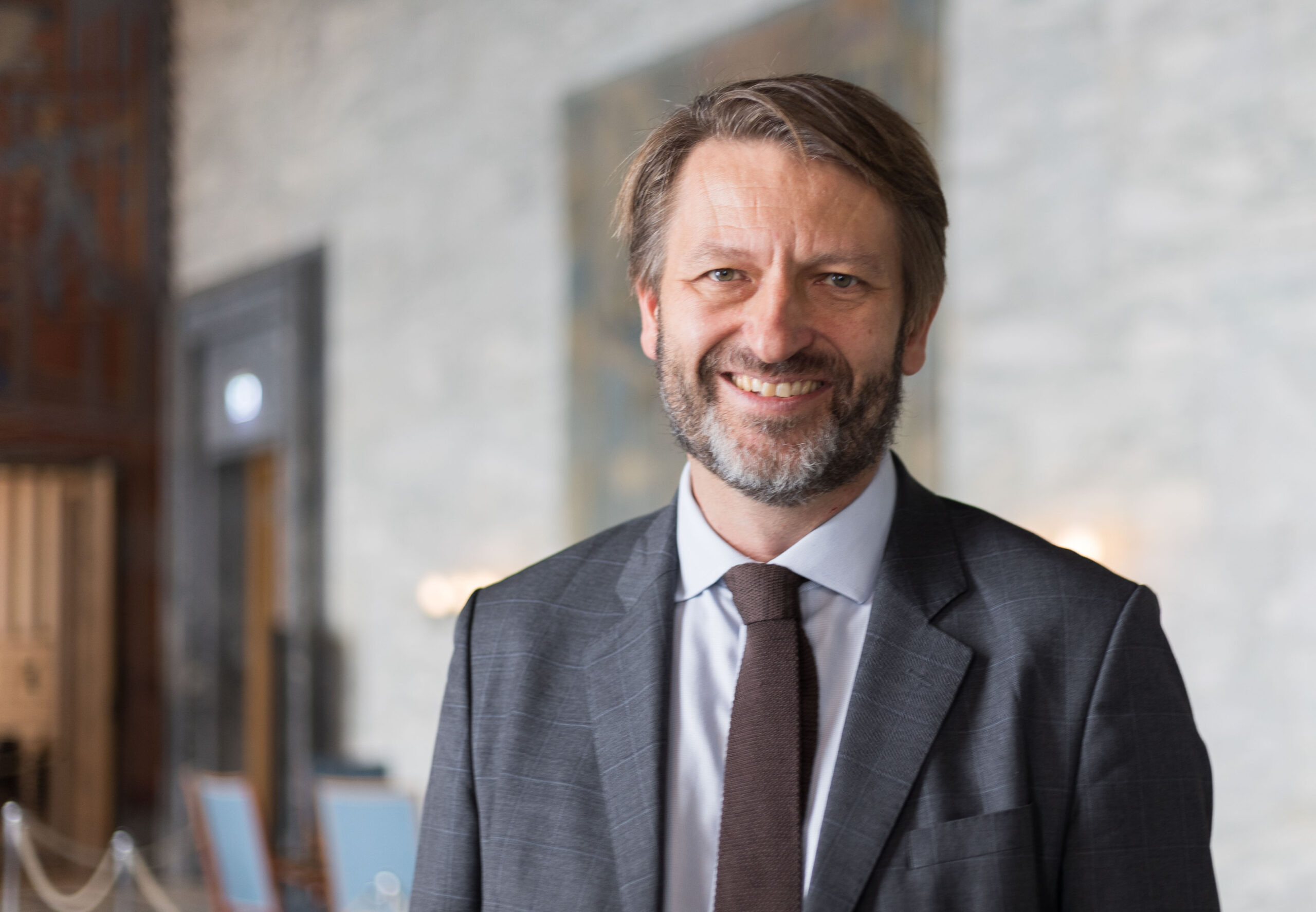Politicians, researchers and representatives from NGOs were present when SEADITO officially launched its three-year project period in Oslo.
«Many of us have childhood memories of catching cod in the Oslofjord, and now most of it has disappeared”, said Eirik Lae Solberg, Governing Mayor of Oslo, during his opening remarks in the official launch of the SEADITO project in the Oslo City Hall.
Lae Solberg’s speech introduced the dramatic situation in the Oslofjord, which is one of six case studies in the SEADITO project. The Oslofjord struggles with pollution from sewage and climate change, in addition to more than 130 years with local fisheries.
“In the past decades, we have gone from a fjord that gave us good, to a fjord in collapse”, said Lae Solberg, and added “We see great possibilities in SEADITO with its leading researchers. I am here to learn, discuss and engage, and I sincerely hope that this project will help us address challenges related to climate changes and better our governance”.
SEADITO part of Mission Ocean
SEADITO is part of the EU Mission “Restore our Oceans and Waters” (Mission Ocean), which aims to protect and restore the health of our oceans by 2030. The project focuses on developing socio-ecological analysis and models to support the European digital twin ocean initiative and thereby contribute to restoring our oceans and waters.
“In SEADITO, we have six case study areas covering different costal and sea areas in Europe. To ensure continuation of previous research related to the Mission Ocean, we are glad that several sister projects introduced their work during our launch,” said Henning Sten Hansen, coordinator of SEADITO and professor at Aalborg University.
EcoTwin, SEADOT and SURIMI all shared their insight at the launch, in addition to Iliad DTO project, which also has the Oslo Fjord among their case studies.
“With new drifters and advanced sensors, we can create a digital twin with more reliable data that will improve our models and make them more realistic. With this technology, we are able to predict the future of various conditions and challenges in the ocean”, said Arne Jørgen Berre, senior researcher in SINTEF Digital, on behalf of Iliad DTOs and European Data Spaces.
Gathered all partners in SEADITO
In addition to the open day with external guests, the consortium of partners met for two days of internal discussions on the overall goals of the project. The SEADITO project is divided into five work packages, and their respective leaders presented how they plan to address their part of the project.
Miriam von Thenen, Postdoc at IoW, leads the work package on case studies, and said the different European sea regions have various challenges.
“The case studies represent diversity of coastal and marine social-ecological systems in Europe. We want to tackle their challenges by understanding cumulative impact from different activities, and identify the benefits humans receive from healthy coastal and marine ecosystems”, von Thenen said.
Erasmia Kastanidi, Hellenic Centre of Marine Research, presented how her work package will work with social-ecological model frameworks and indicators, together with Tin-Yu Lai from the Finnish Environmental Institute.
“When I was doing my PhD, I wanted to use social and ecological indicators, and I was frustrated, because this was very difficult to find data. Now, after 15 years, I can be part of this project and be able to improve this with all of you”, Kastanidi said to the rest of the consortium.
At last, Pyry Kettunen from the Finnish Geospatial Research Institute, presented how his work package will work on technical implementation of social-ecological data and models supporting digital twins of the ocean (DTOs). He presented together with Arne Jørgen Berre, from SINTEF Digital.
“Years ago, it sounded like a dream to be able to get a digital twin of the ocean, but now we are there. I am excited that we can further develop this tool and hopefully SEADITO will contribute to making decisions towards the goal of healthy oceans, seas, costal and inland waters by 2030”, Sten Hansen, coordinator of SEADITO, said in his closing remarks.

